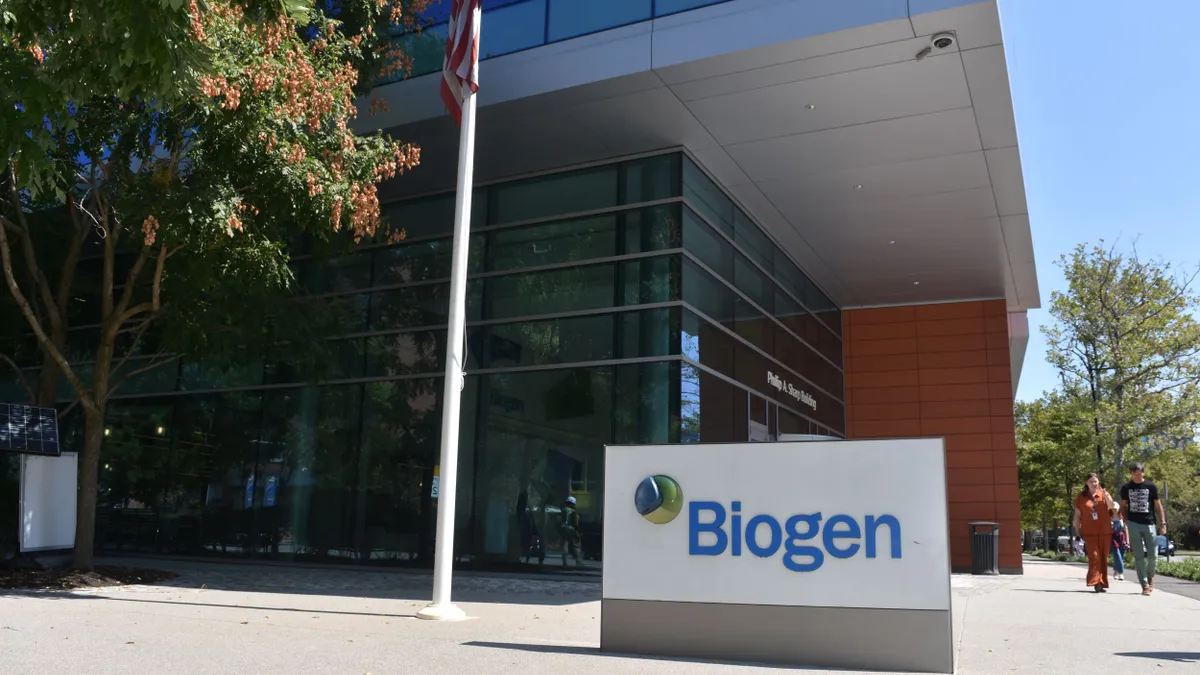Biogen is putting more than $1 billion on the table for rights to an experimental, immune system-regulating drug that has yet to enter human testing.
Through a deal announced Friday, Biogen will pay privately held Vanqua Bio $70 million up front for exclusive, worldwide rights to the drug, which is designed to inhibit a protein, “C5aR1,” that helps control inflammation as well as the immune system’s response to pathogens and harmful cells.
Vanqua could receive up to $990 million more, depending on whether certain development, regulatory, commercial and sales goals are met. The company may also take home tiered royalties on net sales should its drug one day come to market.
Biogen, per deal terms, will lead all future development, manufacturing and commercialization efforts. The agreement “reflects our strong commitment to building a comprehensive immunology pipeline with a strategic focus on both innate and adaptive immune pathways,” said Jane Grogan, the company’s head of research, in a statement.
Grogan added that C5aR1 is a “well-validated target” that “plays a central role across a range of inflammatory disorders.” Gaining access to Vanqua’s drug “enables us to deepen our scientific and clinical focus in immunological diseases where we believe Biogen can make a meaningful difference for patients.”
Best known for taking big swings at high-risk, high-reward diseases of the brain, Biogen has been under pressure to branch into research areas that investors perceive as less perilous. The company, led by CEO Christopher Viehbacher and a revamped executive team, has over the past few years used dealmaking to grow its presence in immunology and rare disease drug development.
In its statement, Biogen said preclinical data support advancing Vanqua’s medication. If positive results continue to pile up, the company expects to ask the Food and Drug Administration for permission to begin clinical trials in 2027.
Vanqua’s chief executive, Jim Sullivan, said Biogen is “uniquely positioned” to take the drug forward because of its “scale, development rigor, and global commercialization capabilities.” Additionally, the licensing deal allows Vanqua to focus on its slate of programs directed at the nervous system.
Myles Minter, an analyst at the investment firm William Blair who covers Biogen, described Vanqua’s drug as an “intriguing early-stage asset” in a note to clients Friday.
Yet, even as Biogen has built out its pipeline of immunology research projects, “readouts and commercialization prospects for many of these assets are several years away, keeping investors focused on more M&A prospects with later-stage assets and more near-term value inflection points,” Minter wrote.
Formed in 2019, Vanqua officially launched two years later with $85 million in Series B funding, from a group of more than half a dozen investors. That list included its Series A backer, OrbiMed, and new investors like Omega Funds, Casdin Capital and Eli Lilly. At the time of the Series B announcement, Bernard Davitian, a partner at Omega Funds, said his firm saw “immense potential” in Vanqua’s approach to creating precision medicines.
Tavneos, a therapy approved in 2021 for certain types of blood vessel inflammation, also works by interacting with C5aR1. Amgen bought Tavneos’ developer, Chemocentryx, for almost $4 billion two years ago.
Another company, Germany-based InflaRx, is working on a few experimental medicines that regulate C5aR1 activity and have reached early- to mid-stage testing. An InflaRx therapy called Gohibic is approved in Europe.














